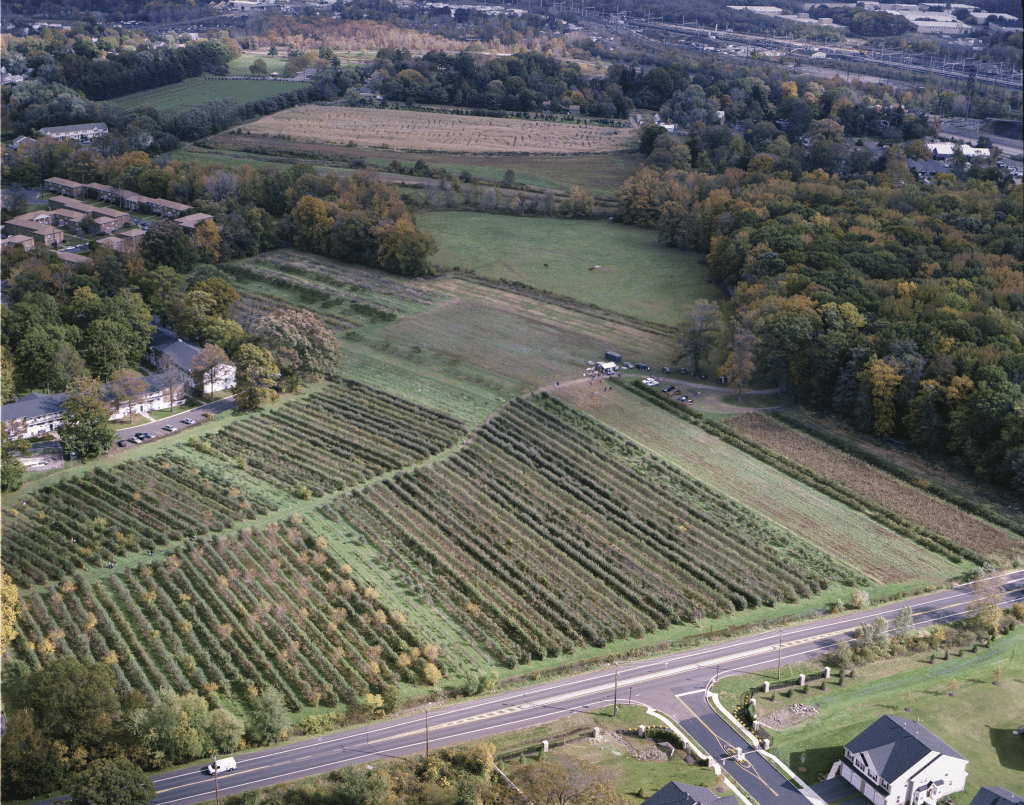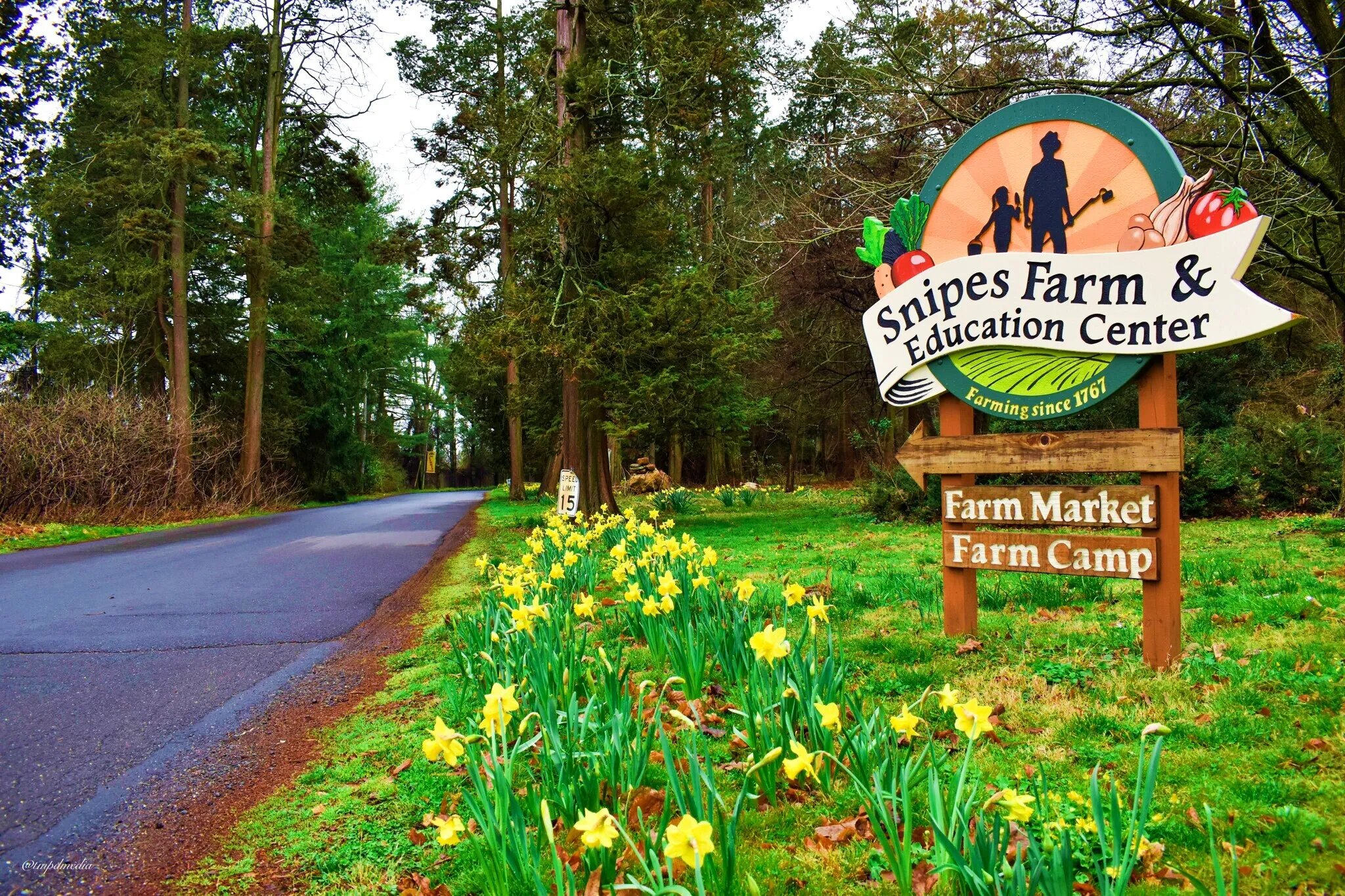A more sustainable future starts now for a Bucks County family owned farm.
Snipes Farm and Education Center is transitioning from a more traditional organic production to a style of farming called no-till market farming. No-till means they are moving away from the typical pattern of plowing, disking, and tilling.
“For folks that aren’t everyday farmers, plowing is breaking up the soil in the Spring, and then the disking takes the big clots you’ve broken up, so you’re plowing and chopping them into smaller amounts to smooth out the soil,” said Jonathan R. Snipes, Executive Director of Snipes. “Tilling makes the soil very smooth and more workable. Then you form it into beds or you’re planting into rows, and you’re either direct seeding with seeds right in the ground, or you are transplanting seedlings that you already sprouted, trying to get a jump on things earlier in the Spring and moving them into the fields as soon as it’s warm enough.”
No-till market farming is creating permanent beds where the crops are planted. Instead of starting anew every Spring and every time you prepare the field to plant, you have permanent beds.
“That means the plow is pretty much put in the barn permanently and never used again,” laughed Snipes. “It allows us to have greater production in a smaller area and produce more income out of a smaller area. It treats the soil better.”
Every time you chop up the soil with a plow, you are opening the soil and releasing carbon into the atmosphere. “You are disturbing or killing microorganisms that live in the soil,” explained Snipes. “You are opening the soil up to be dried out through wind or to be washed away next time you have a heavy rainstorm.”
Snipes is trying to protect the soil as much as they can. The Morrisville property is 150 acres, and they are actively farming on about eight acres; the rest of the property is in woodlands and streams, pastures and meadows, and areas for other commercial uses.

“We all think of the plow as a beginning point for civilization almost and I’m not knocking that,” he laughed. “We know that at least for small farms like ours, we have to treat the soil better. It’s taking care of people and it’s taking care of the planet as well.”
Snipes had their first test plots of creating permanent beds. “If you were to look at a no-till market farming style farm, it would look more like a patchwork quilt from the air,” said Snipes. “You’re seeing areas of farming or beds that the plants are grown in that have been placed in a way that they are catching water as it moves across the surface. It may not look like huge long, straight farm fields, but more like a patchwork quilt. And those are the permanent beds.”
Every time you harvest out of a bed (lettuce, for example), you’re cutting it and leaving the roots in the soil. They decompose and feed the soil. You add perhaps some compost on top of what you’ve just harvested, and then you plant right into that by hand.
Much of the work is done by hand, called human scale farming. Small farms have studies of them upping their production on an acre of land and reducing the amount of labor they need, reducing the amount of large equipment like tractors, and then reducing the amount of fossil fuel used.
“Permaculture is more a vision or a practice that looks at the landscape and assesses how we can use the landscape to gain the greatest good from it while actually improving it and not harming the water flow recharging the water table,” said Snipes. “Being aware of how air and water move across the landscape and being aware of the role that wildlife plays as well.”
Leaving areas for wildlife is critical for pollinators because so much of our food is pollinated by insects. “If you’re eating tomatoes, cucumbers, blueberries, strawberries, peaches or apples, all these things have to be pollinated by insects,” said Snipes. “And if there is not habitat left for insects, then we’re harming our own ability to create the food that we eat.”
About a dozen staffers are involved in the no-till market training right now, including Snipes family members, employees and board members. During the season, six people grow the crops.
This is probably a three-year transition. “We’re going to be creating more permanent beds this year and beginning to move more of our production into those beds,” he said. “The larger process of transitioning our entire property to permaculture – that’s a longer process because that involves woodlands, streams, where buildings are placed, where roads are placed, how people travel across the landscape. That’s a master plan.”
The permaculture process will probably be ongoing for the rest of their lives as they restore the landscape. “We have 150 acres here that’s been in my family for the past 200 years or so,” said Snipes. “It’s still open space and we’re proud of that. We’re in farmland and open space preservation – one of the last farms in our immediate area.”
Snipes is thinking about how to do an even better job with reforestation. “How do we do a better job protecting our streams and our water quality? And also for people that visit the farm to have access to hiking and walking trails in the meadow and in the woodlands.”
Snipes Farm received money from a donor for the consultation with Jason Gerhardt. He’s doing training with staff and then a consultation.
“It’s an investment, but we feel like it’s an investment that will actually pay off, not just in our own internal sense that we’re doing the right thing, but also in upping production,” said Snipes. “Some folks that are using no-till market farming are producing $100,000 of agricultural products out of one acre. A typical farm using other methods of farming might be producing half as much or less. So, it’s a more productive system of farming as well.”
Snipes concluded they have to spend some money upfront, but they think that the return on investment will be excellent. And part of that return includes further realizing the farm’s mission “to model and teach sustainable farming, while building community and reconnecting people to the land.”






